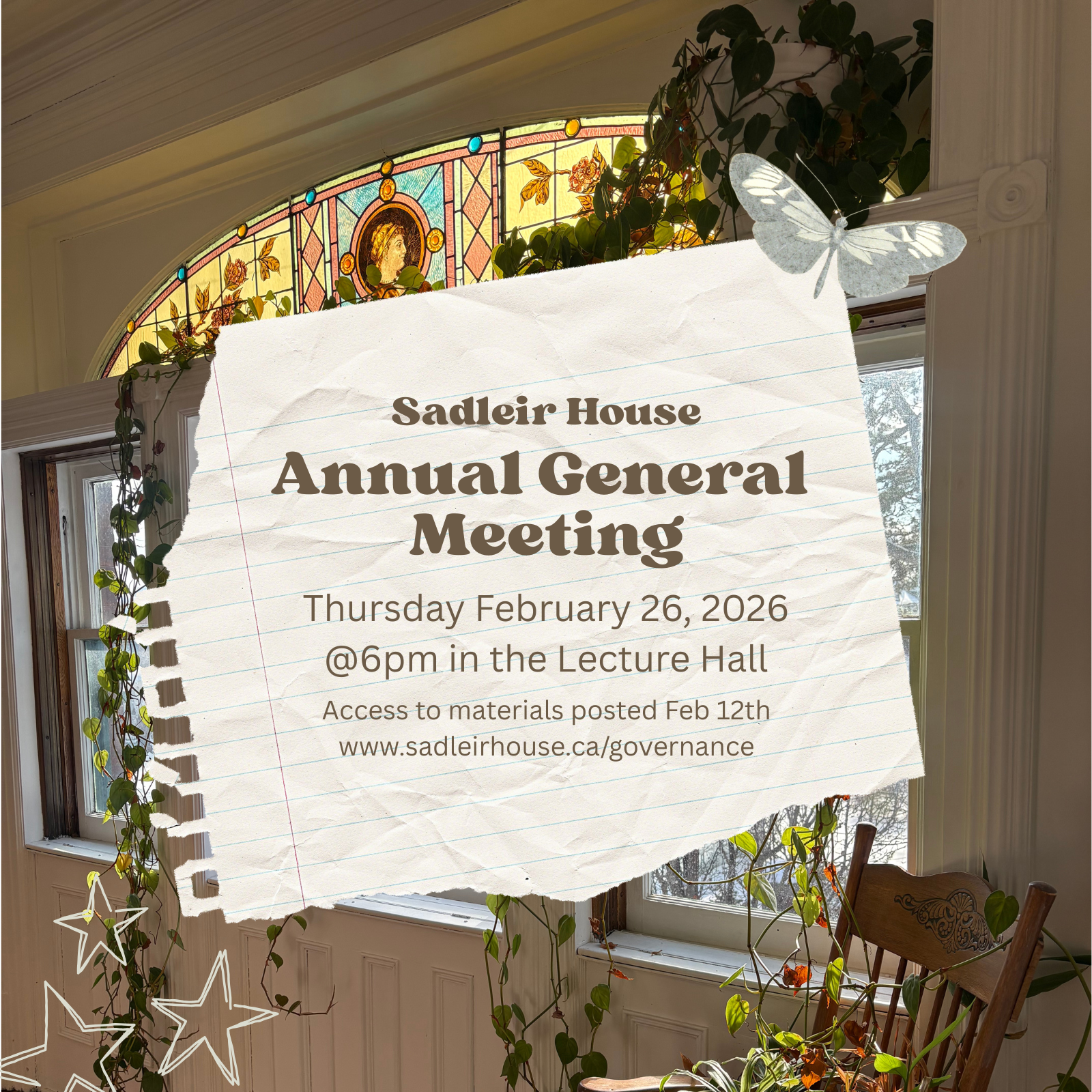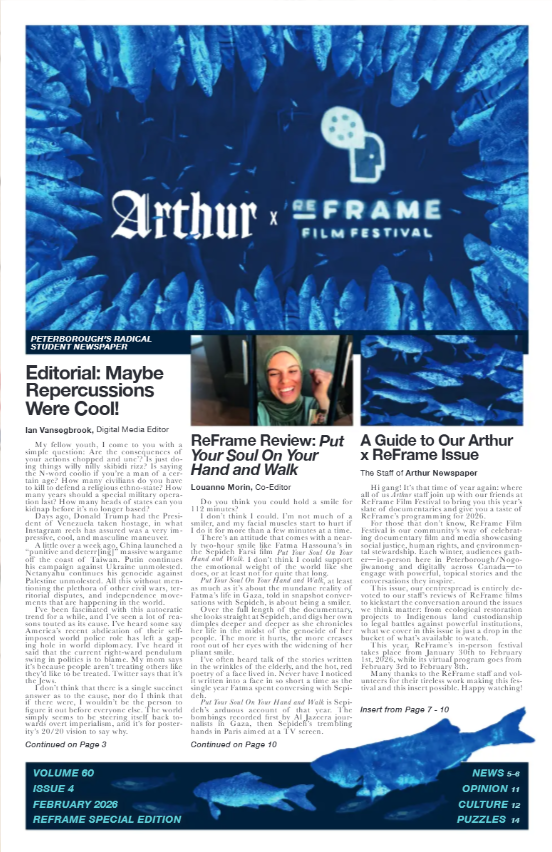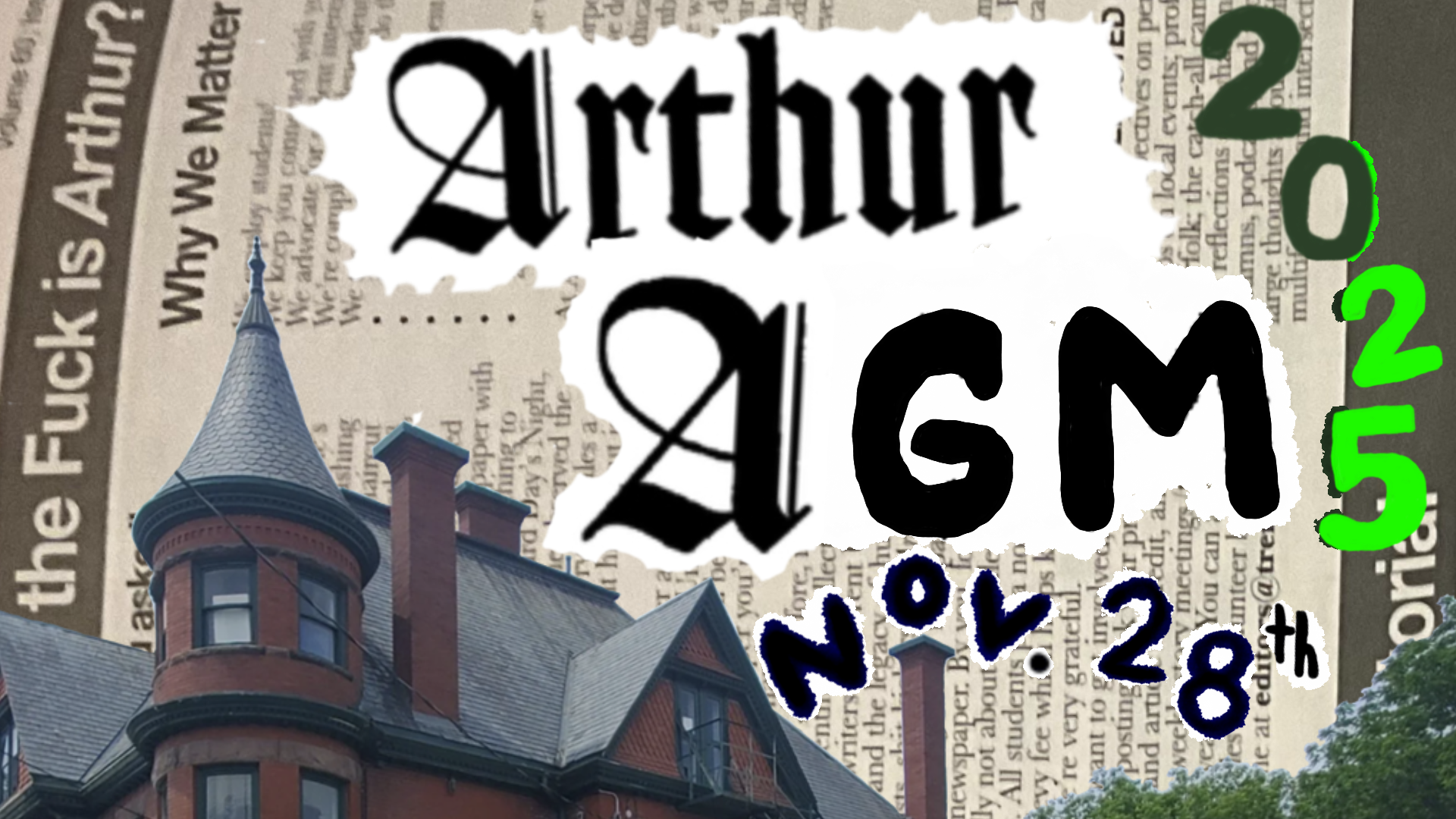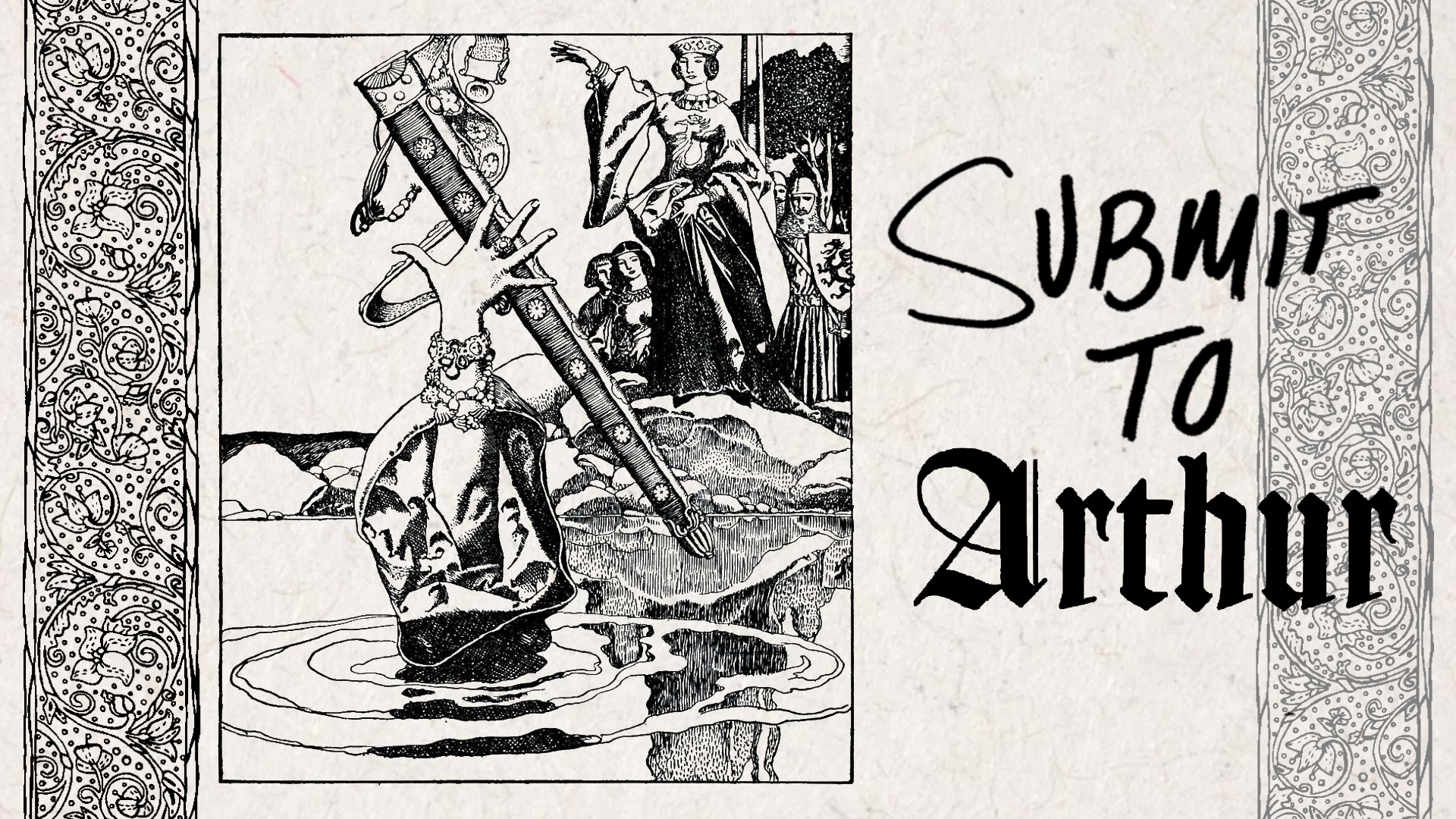Reporting on the facts is a never ending struggle. Where did these facts come from, how biased are they, and who is affected by these facts? Who is reporting this news, and do they fully grasp the nuances of their chosen topic? These are some of the many questions behind the journalistic ethic. They are also indicative of a greater philosophical quandary; what is truth, after all?
Publications will always disappoint certain demographics no matter how hard they try to remain neutral. All news institutions are run by humans with a subjective view of the world, and as much as it is right to demand fair coverage, it must be acknowledged that pure objectivity is unattainable. The well-known stereotype of Arthur Newspaper that has grown over the years is of a “leftist rag”.
Regardless, since its inception, Arthur has held dear its role as a voice for the student body, encouraging anyone in the community to contribute.
Truth is subject to revision, and history is malleable, which is why objectivity in journalism is such an elusive yet vital aspect to good reporting, in spite of (and because of) the ability of some events to create such fiery, polarized debates. Arthur’s responsibility lies to its readers. Thus, an onus falls on the editors to ensure that all voices are given a platform, as long as there is no hate speech inherent to a contributor’s message.
The political climate has been stormy as of late, putting Arthur in a particularly critical position. As women of colour and members of the Trent University community, the recent acts of hate and threats made on campus have been disheartening. Our stance is clear: these actions have no place at our university. This sentiment extends to our attitude towards Arthur and its content as well; hate has as little a place in this student paper as it does in this community.
In Issue 9, we published letters to the editors as well as an article reporting on the Make Trent Safe protest that responded to individuals being made to feel anxious on campus post-election. In the same issue, we published an article describing a situation labelled as an “attack sexual in nature” against the Trent Conservatives. Both of these articles were reports on facts received and reported on by Trent students. In no way can we silence either voice, whether or not there is a body of students who believe that one side has inflated the truth or not. That is where censorship begins. In response to the rumours we have heard regarding a “boycott of the paper,” we counter: write to the paper! We are here and we want you to get angry, whether it is at us or at someone else. A newspaper can not represent an ideology, and a “leftist” takeover of Arthur would be just as inappropriate as an alt-right takeover of Arthur.
There is a general paranoia of the media and the truth they drop, and that is a very valid suspicion to have when politics and money are so closely tied with mass media. This paranoia extends to micro-publications as well, including Arthur. When it comes to the truth in Arthur, there is no winning, and we’re okay with that. On one hand, we have been accused of being too complacent, and on the other, we have been so hard-hitting in our reporting that we have had to confront accusations of libel and harbouring hidden agendas in exposing divisive issues on campus.
Ultimately, what is required of us is to allow a dialogue to take place, not as a mediation service, but as a place where individuals and groups of differing opinions can see their voice represented. This is crucial to us, and we will continue to provide this service during our editorship. In the fullness of time, according to Greek tragedian, Sophocles, “what people believe prevails over the truth,” and this is what good journalism must battle against. We saw too much emotion and preconceived notions leak into one of the most important elections of this decade; let it not affect the integrity of this paper.
The CBC recently revealed that they are the “third worst funded public broadcaster in the world among comparable countries with only New Zealand and the U.S. receiving lower per capita funding.” Consequently, they have made a controversial request for an increase of funding that would enable them to function completely ad-free. Conservative critics like Maxime Bernier and Kellie Leitch have used the opportunity to publicize their views that the CBC should be downsized and demolished, respectively. Ironically, both the views of the CBC and of these politicians reflects essentially the same quest for objectivity.
There will always be contradictory powers vying to present the “best” version of the truth. All we can do as a publication created by readers for other readers, is to actively ensure that no voice is going unheard, that all relevant events and developments in the community are being covered and explored, that individuals are held accountable for their actions, and that the facts that we do receive are credible. Arthur will continue to resist polarising and hysterical discourse, and will aim to factually report on every facet of campus and community life. This stage is always open, so bring your soliloquies and speeches, and let the drama unfold.





.png)












.jpg)



.jpg)




.jpg)
.jpg)

.png)